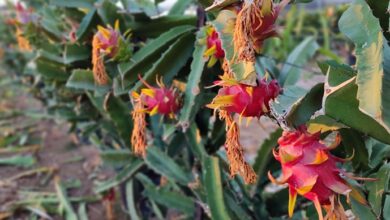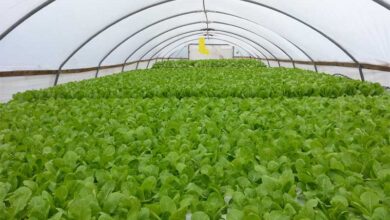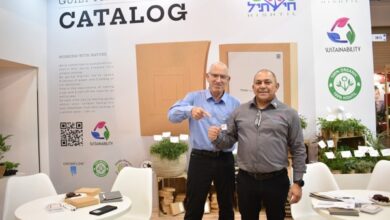Zeraim Gedera-Syngenta In the Era of Food Security
An Open Day at the Model Farm for Innovation in Production of Tomato Varieties
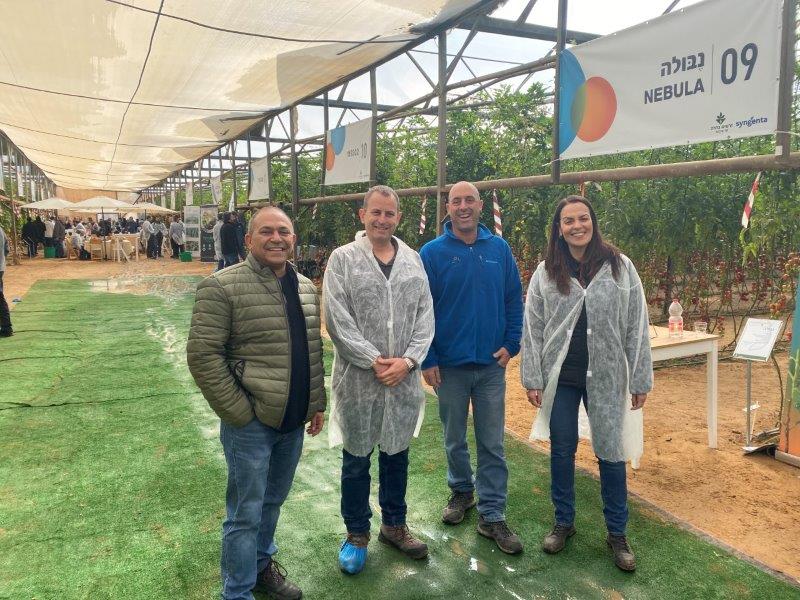
When tomato growers from around the country received an invitation to the event that took place in early February in the south of Israel, it said: This is not just another “open day” organized by Zeraim Gedera-Syngenta seeds… It’s your chance to discover the future of your greenhouse!
And that’s exactly what happened. Those who attended the event did not just take part in a regular open day, but had a true opportunity to see and explore an impressive array of innovative technologies.
One feature was a first-of-its-kind display of four excellent tomato types customers know and love: Cluster, Cherry, Single, and Elongated—all of which are resistant to the ToBFRV virus—and how they are grown by combining several modern methods in the state-of-the-art Model Farm the company built in Moshav Ohad.

To illustrate new growing solutions, attendees were shown new commercial varieties or cultivars, some adapted for different growing methods whether on detached substrates or in the ground.
Two of the varieties presented in the greenhouse were:
Ikram – a leading variety due to its longer shelf life and firmness for the benefit of the entire value chain: Growers can wait for all the tomatoes on the cluster to ripen instead of picking them gradually. Sellers and distributors enjoy an excellent post-harvest shelf life. Grocery chains receive products with no losses and high fruit quality.
Lansor – one of the world’s first varieties resistant (IR) to the ToBFRV virus. Just as other new varieties showcased in the structure, they are also resistant to ToBRFV.
All new products are undergoing trials, resulting in different levels of resistance.
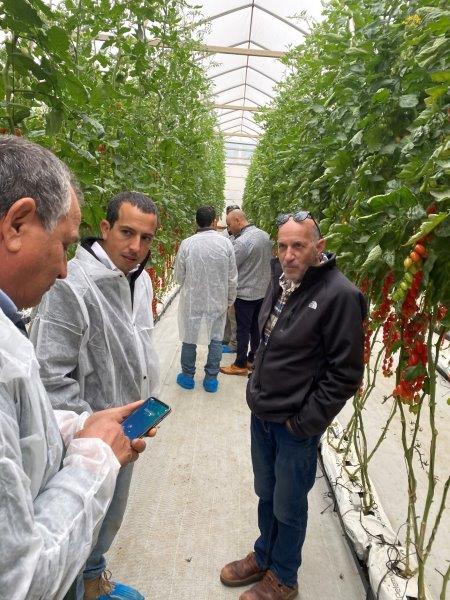
On the right side of the greenhouse, growers and other visitors were able to observe trials being conducted on different tomato varieties using the technologies of seven companies carefully selected by Zeraim Gedera-Syngenta, and to meet their respective representatives so they could hear essential information on their innovations directly from the source.
As Tamir Basson, Marketing Operations Lead Israel said: “Alongside our high class genetics, it is our primary goal to make these technologies accessible to growers. To bring about sustainable agriculture, that will yield more high-quality crops while reducing growing costs, and of course, increasing profitability. The objective is for these diverse technologies and the learnings obtained from their use to generate growing protocols. When adopting these tools and methods, Growers will be able to make better decisions based on data collected from their own greenhouse, and thus reduce the growing uncertainty inherent to farming in an era of global warming.”
Lior Kushnir of Zeraim Gedera, GM, Israel and Territory Marketing Manager Veg., East Europe & Central Asia at Syngenta reinforces this point by adding: “Although these products have good genetics, the path to maximizing the potential of such varieties also involves adopting and incorporating new technologies and techniques.”
At the entrance to the greenhouse, we met Eli Shalmon, Co-founder, Marketing & Business Development Manager at Pelemix Ltd., a well established company specializing in developing products for different types of crops on detached substrate. According to Eli, the greenhouse presents a highly professional approach that allows tomato growers from around the country to test and compare growing efficiency on detached substrates versus growing in the ground, for each variety.
Several companies were selected by Zeraim Gedera-Syngenta to present their technologies in the greenhouse:
Agrinoze has a unique, precise methodology that utilizes the plant’s root as a “super sensor” to monitor the plant’s physiological activity day and night, and reacts in real-time to the changes and/or needs in the plant’s physiological cycle.
Culception is a precision agro technology company developing solutions that will take the guesswork out of farming. Its growing area control systems are used by cultivation networks worldwide to produce high-value crops consistently, sustainably, and at scale.
Culception’s tools and software collect, process and provide growers with actionable insights based on high-res data. This increases the success rate of growers and saves up-to 40% in water, fertilization, energy and labor costs.
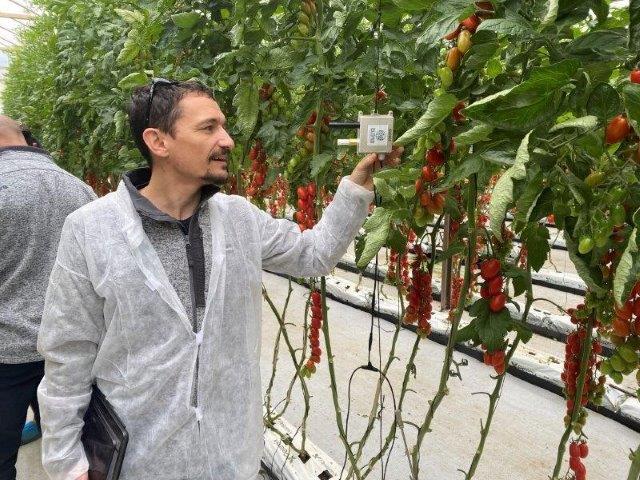
FruitSpec, a farmers-for-farmers company, was established by citrus growers with the clear mission to help the global fruit industry increase revenues through effective innovative solutions for each stage of the fruit production supply chain.
Grofit is working on a new concept to create a digital representation of greenhouse crops identical to the real one in order to simplify greenhouse control using remote sensing and artificial intelligence.
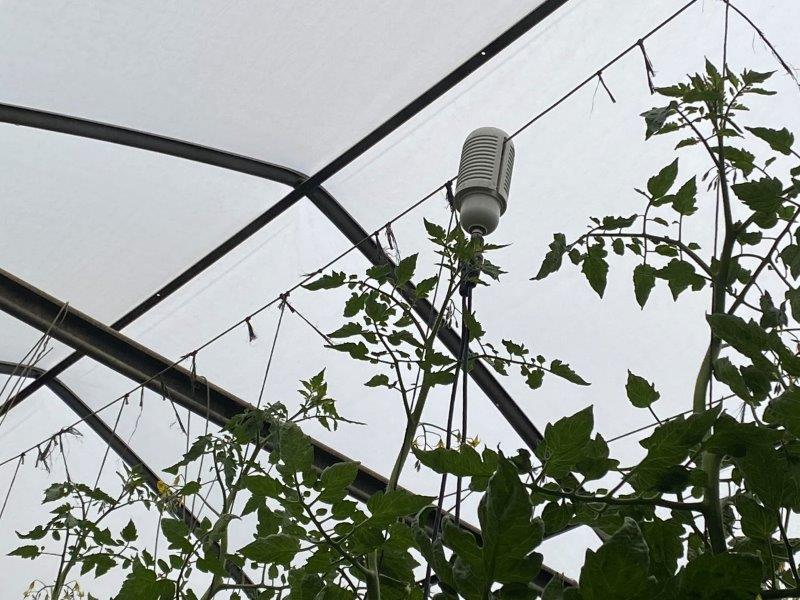
Pelemix takes pride in providing a sustainable green solution in a world where consumers demand organic and eco-friendly cultivation options.
Plant Di-Tech provides innovative plant-environment deep diagnostic tools that bring scientists, breeders and agro-business to new discoveries and better yields within different environments, with accelerated R&D and shorter time to market.
Yevul info has developed a sophisticated algorithm which gives farmers peace of mind. Not only does it optimize fertigation protocols by about 20 to 25% to avoid unnecessary costs, but also reduces soil and water contamination with chemicals. This is done through a stress control system—the only one that can predict crop stress about 10 days in advance.
Undoubtedly, the establishment of the Model Farm by Zeraim Gedera-Syngenta reflects its experience of many years, deep acquaintance with Israeli farmers, and knowledge of the changing growing conditions. The company understands that if it wants customers to succeed, it must also make advanced cultivation technologies available to them that will improve their results, increase profitability, and motivate them to continue working in the seasons to come.

